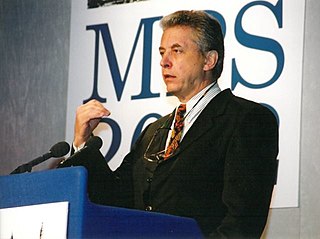A Quote by Peter Gleick
This isn't about 'causality' but about 'influence'. The evidence is clear that human-induced climate change is influencing the drought, no matter the cause.
Related Quotes
Climate change hype has grave real world consequences. It gets rich countries to adopt silly policies and to impose devastating eco-imperialism on poor countries. The world's rich millions can afford environmental extremism; its poor billions can't. Climate change pseudo-science about human causality has been exposed repeatedly. What's less appreciated is that there aren't more natural disasters in need of an explanation.
There's real economic costs to climate change - So, Superstorm Sandy led to billions of dollars in damages. The fires out in the west, 70 million dollars a day are being spent in fighting fires that have clearly been exacerbated by drought and climate change. So, people have pointed out the true dollars and cents cost of inaction on climate change.
The climate change debate is basically not about science; it is about ideology. It is not about global temperature; it is about the concept of human society. It is not about nature or scientific ecology; it is about environmentalism, about one - recently born - dirigistic and collectivistic ideology, which goes against freedom and free markets.
There is no strong evidence to prove significant human influence on climate on a global basis. The global cooling trend from 1940 to 1970 is inconsistent with models based on anthropogenic carbon dioxide emissions. There is no reliable evidence to support that the 20th century was the warmest in the last 1000 years.




































